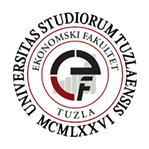THE EFFECT OF SOCIAL PROGRESS AND EDUCATION ON CORRUPTION: A CONTINGENCY THEORY PERSPECTIVE
Keywords:
corruption, national culture, education, social progressAbstract
Corruption, commonly defined as the abuse of public power for private gain, is a widespread phenomenon in many countries of the world where its consequences have serious problems. The main purpose of this study is to investigate the moderating role of national culture on the social progress-corruption link and education-corruption link. It was hypothesized that social progress and education restrict corruption, and that the magnitude of these effects are contingent upon conditions of national culture. The data set for this study was obtained from secondary sources and it included the following measures: (1) the corruption perception index by Transparency International; (2) the social progress index provided by the non-profit organization the Social Progress Imperative; (3) the education index by United Nations Development Programme, and (4) the scores of Hofstede’s national culture dimensions. These measures were gathered for 84 countries across five continents (Europe, Africa, Asia, North America, and South America). Support was found for the main effect of social progress on corruption as well as for the main effect of education on corruption. Consistent with a contingency theory, the findings indicate that both social progress-corruption link and education – corruption link are moderated by power distance and individualism. However, support for the moderating effect of two other national culture dimensions (masculinity and uncertainty avoidance) was not found. This study emphasizes the importance of a holistic approach in formulating anti-corruption policies and provides implications for policy-making to reduce corruption.
Downloads
Downloads
Published
How to Cite
Issue
Section
License
Copyright (c) 2024 Economic Review: Journal of Economics and Business

This work is licensed under a Creative Commons Attribution-NonCommercial-NoDerivatives 4.0 International License.




